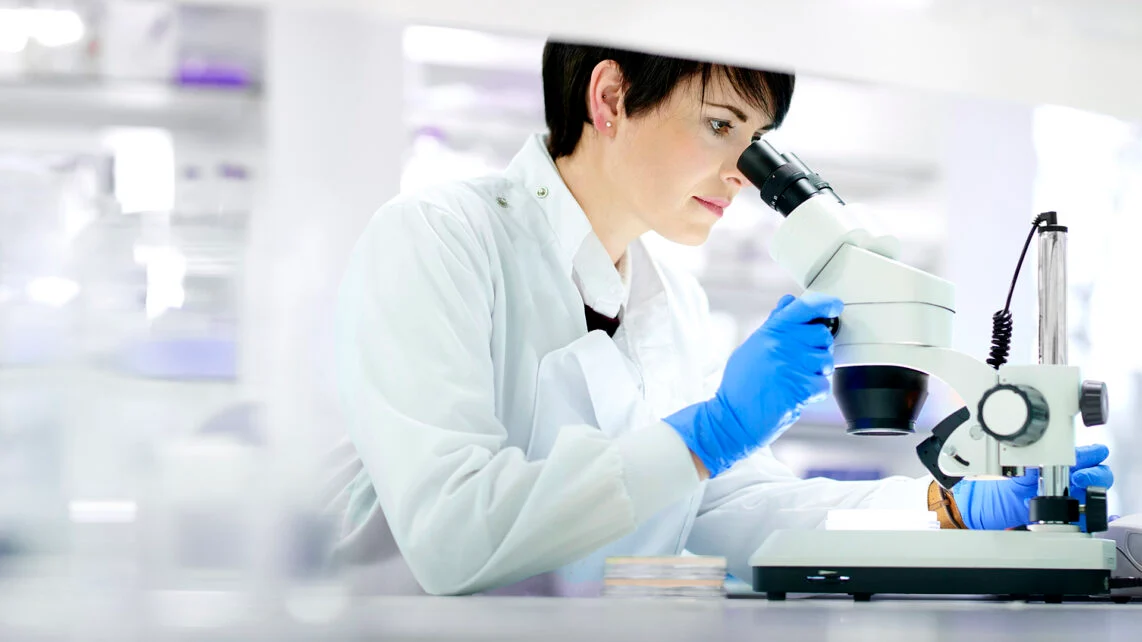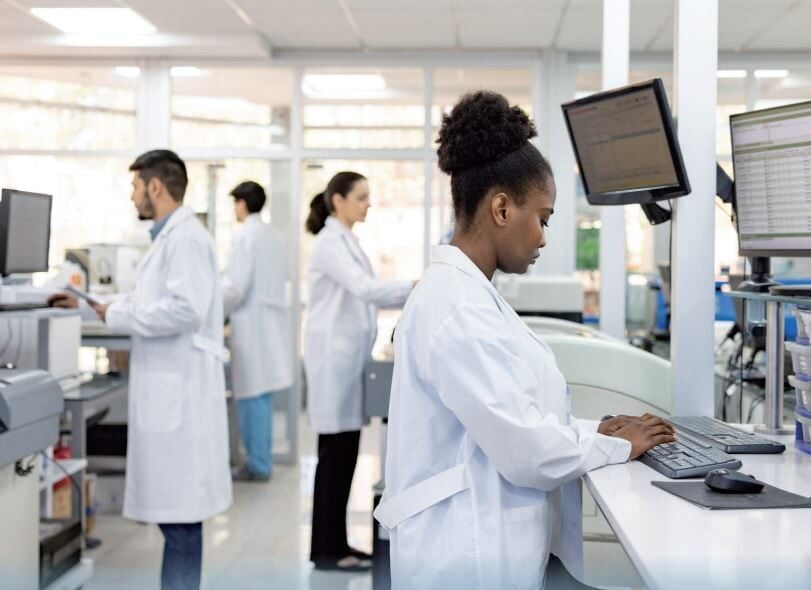Advancements in Laboratory Operations Powering the Shift to Data-Centricity
In recent years, laboratories have increasingly relied on Laboratory Information Management System (LIMS) to support their lab digital transformation efforts. This trend has been particularly evident in competitive environments like Contract Testing
However, as laboratory digital transformation has progressed, the priorities of laboratories have evolved. The focus is no longer solely on efficiency; there is a growing recognition that data is the most valuable asset for LIMS software solutions to manage. The integration of LIMS and artificial intelligence (AI) has become a critical differentiator for any LIMS software solution.
Initially, laboratory software solutions were designed to manage the flow of information within a CTO or CSO and ensure that processes were carried out efficiently, representing a significant improvement over paper-based systems. The explosion of data generated by these solutions has shifted the focus toward data-centricity.
Advancements in data storage, processing technologies and generative artificial intelligence (GenAI) are powering the shift toward data-centricity. GenAI is poised to revolutionise laboratory operations by unlocking the value stored in data and transforming it into meaningful insights that drive decision-making.
Nevertheless, making the switch poses significant challenges, according to Shay Hassidim, Clinisys’ Chief Technology Officer, “legacy LIMS systems often store duplicative, erroneous, and unstructured data in isolated silos. Despite recent significant investments in data lakes and warehouses,
The integration of GenAI into LIMS systems has facilitated sophisticated
The evolution of data-centricity in lab operations
The transition from patient- or sample-centric to a data-centric approach in laboratories has been gradual yet significant. Initially, LIMS systems were developed to
The realisation that data could serve as a powerful asset, rather than merely a byproduct of laboratory operations, opened new opportunities for leveraging data-centricity in LIMS. This was further accelerated by the emergence of GenAI and machine learning (ML) technologies, which enabled the processing and analysis of vast amounts of data. GenAI and ML tools can offer pattern recognition, predictive analytics and complex modelling.
Today, laboratories are adopting GenAI and ML to exploit their data for purposes beyond operational efficiency. Data has become central to enterprise architectures, allowing laboratories to embrace data-centricity as a means to drive innovation and maintain a competitive edge. Having the ability to extract data can help, for example,
Overcoming challenges in data-centric lab transformation
While the benefits of a data-centric approach are evident, the transition can be challenging. One of the primary challenges is freeing data from silos. In many laboratories, data is stored in disparate systems that do not communicate with each other, making it difficult to obtain a comprehensive view of all available data. The lack of integration leads to inefficiencies, errors, and missed opportunities for data-driven insights and greater efficiency.
Maintaining data integrity in laboratories is another challenge. As laboratories generate and manage increasingly large datasets, maintaining the quality and reliability of this data becomes more difficult. Insights derived from data must be accurate and trustworthy, requiring the implementation of data governance practices and technologies that support the reliable management of data throughout its lifecycle.
Moreover, the transition to data-centricity requires a cultural shift. Laboratory staff may need to adopt new perspectives on data and its role in laboratory operations, reconsidering how data is collected, stored,
Data Integrity in Laboratories and Market Demand
High demand and rapid growth introduce challenges. The shift to data-centric computing coincides with growing demand for outsourced CTO and CSO services. The global laboratory services market was valued at USD 233.2B in 2023, with a compound annual growth rate (CAGR) of 3.5% over the next six years.
This growth is being driven by life science companies seeking to lower research costs and small to mid-size pharmaceutical and biotechnological companies conducting research & development with limited resources.
CTOs and CSOs operate in highly competitive industries. Competition exerts pressure on profit margins, so the imperatives that initiated lab digital transformation — streamlining processes and implementing workflows that reduce time and costs — remain relevant. Data integrity, achieved through compliant data collection, storage and analysis, is the foundation of delivering value today and extracting data-driven value in the future.
Meeting regulatory compliance is not becoming easier. Complex global and national requirements, audit preparedness and quality control place ever-growing demands on laboratory staff and the LIMS software solutions that support them. Increasing demand also highlights potential scalability issues in LIMS.
The most effective LIMS systems build data integrity through consistent, reliable processes and robust, well-integrated technologies. The fewer handoffs and human interactions with data, the higher the data quality.
Towards Configurable LIMS Platforms
Every day is not the same in a CTO and CSO environment. These modern
CTOs and CSOs are under constant pressure to offer more to their clients, including more testing solutions that support a broader range of industries and more applications. Taking on new projects and delivering them on-time and within budget requires deft resource planning and a configurable LIMS platform to support the work.
Supporting different projects from various disciplines requires configurable LIMS software solutions that can adapt and grow in response to shifting market demands. Data-centric laboratory computing, powered by the Clinisys™ Laboratory Solution, provides the flexibility to handle data in a manner that best suits the unique requirements of any laboratory.
Whether it involves environmental, air, or soil testing, or research with high-quality specimens (biorepositories), Clinisys™ Contract Services LIMS solution promotes agility, collaboration and adaptability in an ever-evolving scientific laboratory landscape.
Related Content

Adapting for the Future: The Need for Agile and Scalable LIMS
As laboratories across diverse industries continue to evolve, there is a growing need for Laboratory Information Management Systems (LIMS) that go beyond traditional capabilities. Laboratories today face increasing pressures to enhance efficiency, integrate seamlessly with other systems, ensure data integrity and regulatory compliance, and scale to meet changing demands.

Informatics Solutions to Help Contract Laboratories Thrive Under Pressure
Contract research and testing laboratories are under constant pressure to meet client expectations while also keeping up to date on regulatory changes and managing multiple projects and costs. A robust laboratory information management system (LIMS) is essential to effectively manage contract testing, whether in-house or outsourced…